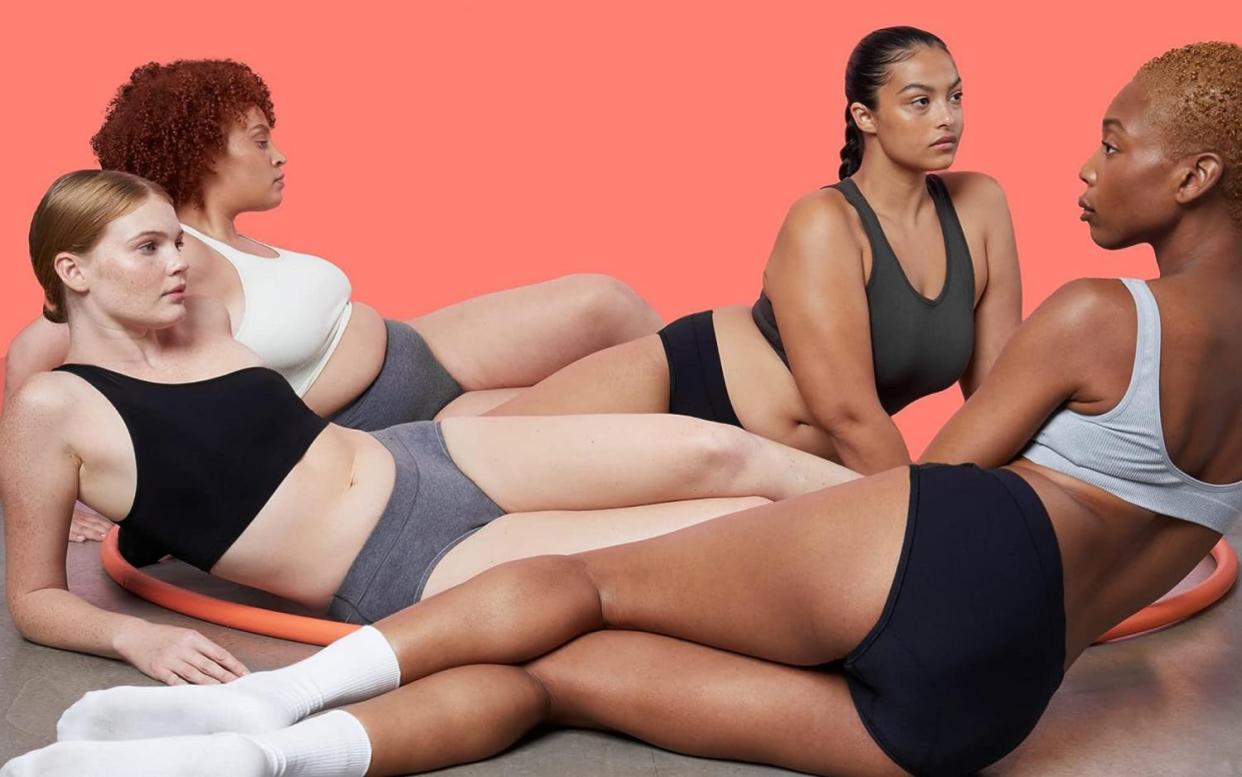Period pants - passing fad or the future?

For most midlife women, the term “period pants” probably brings to mind the ratty-tatty pair of knickers kept in the drawer to see us through the heaviest days of menstruation and potential leakage. But in recent years, the term has taken on a different meaning: the modern period pant is a regular, thicker pair of knickers, that a woman wears instead of sanitary towels or tampons.
Period pants are part of the trend for reusable products that produce less waste, and hence are kinder to the environment. Similar devices include the Mooncup, beloved of Generation Z – the small, foldable piece of silicone or rubber which is inserted into the vagina to collect, rather than absorb, menstrual blood.
“Since 2018, reusable sanitary protection has seen a rise while disposable products have seen a decline,” says Emilia Greenslade, a research analyst at Mintel. “This is largely down to the rise in concerns over the environmental impact of plastic”.
Menstruating is an expensive business, and for many years, women were hit by unfair taxes on sanitary products. In 2021 there was a breakthrough: the so-called “tampon tax” was dropped from pads, tampons and menstrual cups. But this didn’t apply to period pants, which were initially categorised as “garments”.
Finally, this week, following a two-year campaign by retailers, women’s groups and environmentalists, women were told that they will no longer have to pay VAT on period pants.
So should you, your daughter, or your granddaughter be turning to the reusable period pant? Here’s everything you need to know:
What are period pants?
“Period underwear can be worn as an alternative or enhancement to tampons or menstrual cups,” says Dr Tia Guster, an obstetrics and gynaecology specialist. “While you don’t need to wear a pad or panty liner with period underwear, you can still opt to wear a tampon or menstrual cup, depending on your flow.”
At 3mm, period pants are slightly thicker than a woman’s normal underwear, and usually hold around two standard tampons’ worth of menstrual blood. They only need to be changed every 10 to 12 hours.
How do they work?
Period pants are made from multiple layers of microfibre polyester. The fabric contains a moisture-wicking material made up of thousands of small filaments, which stop the menstrual blood leaking onto a woman’s clothes. The outer layer usually includes nylon and Lycra, and is then finished with a liquid-repellent film.
What are the pros of period pants?
Comfort, for starters. “Period pants aren’t bulky under clothes and it won’t feel like you’re wearing a sanitary towel,” says Guster. “You can wear them at the gym, while sleeping at night, or to work or school.”
As the pants are worn outside, instead of inserting protection into the body, this removes the risk of toxic shock syndrome, the rare but serious infection that can result from wearing tampons.
There’s the environmental benefits, but period pants are also kinder on the wallet.
“Depending on the frequency of your menstrual cycle, period pants are likely to pay for themselves in a few months,” says Guster. Marks & Spencer sell packs of three pairs for £16.
Do they have any downsides?
Some brands of period pants contain silver – added by retailers as an antimicrobial agent to combat user concerns about smell and hygiene. However, scientists are increasingly worried about the potential health effects of silver. In November 2023, the US Food and Drug Administration found that high levels can kill lactobacillus, the healthy bacteria in the vagina that help fight off infection, putting period pant users at increased risk of infections and pregnancy complications.
“Consumers should be cautious buying period pants which contain silver as experts have concerns about the health implications,” says Natalie Hitchins, the head of home products and services at Which?. There are currently no legal limits in the UK about how much silver can be added to period pants, so it’s up to buyers to check the label.
Recommended
How to eat, sleep, train and boost your mood during your menstrual cycle

